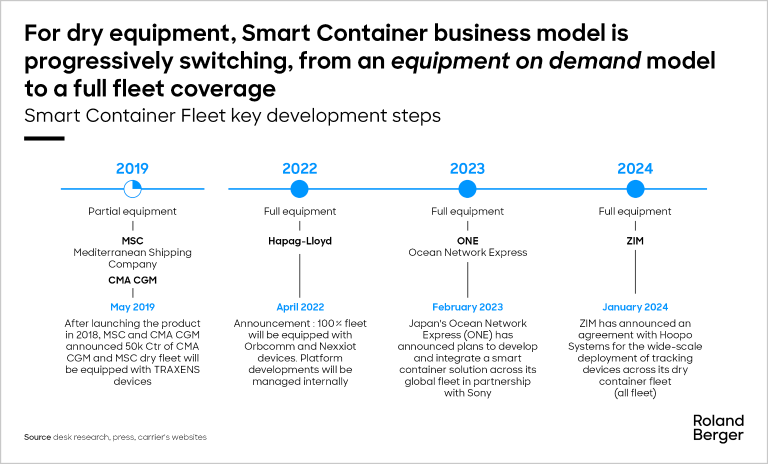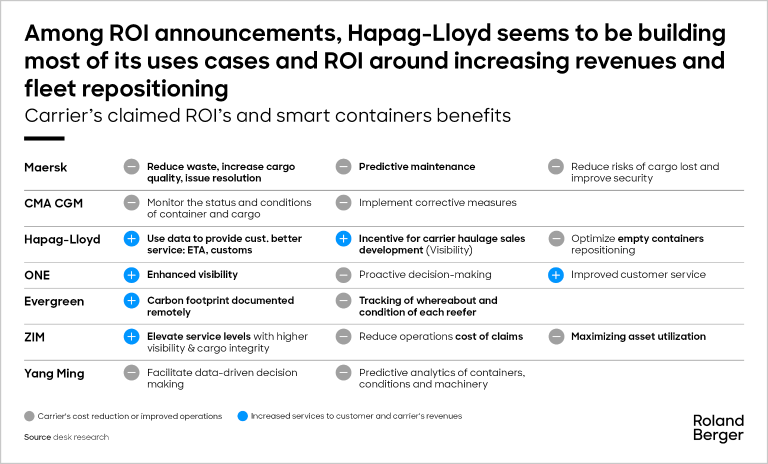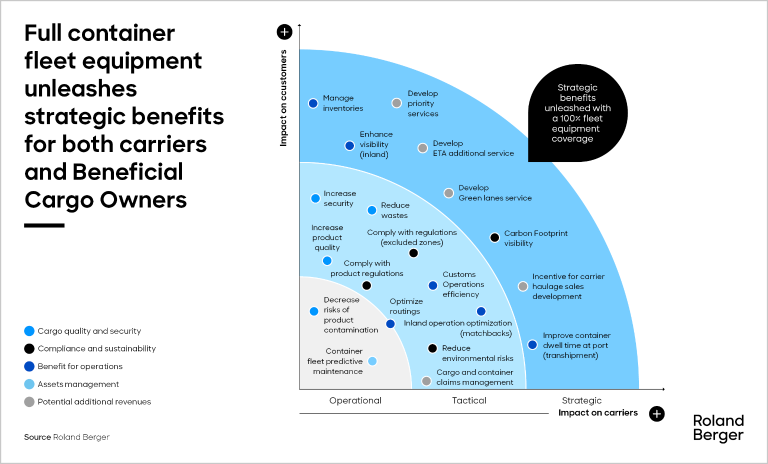Is it time to question start-ups investment models?
The smart container era
![{[downloads[language].preview]}](https://www.rolandberger.com/publications/publication_image/image_download_preview.png)
The smart container industry is entering a transformative era marked by a major shift from limited deployment to comprehensive fleet coverage of smart technology. This transformation is crucial as it heralds enhanced visibility, security, and efficiency in the shipping sector. This topic encapsulates both the challenges and opportunities for carriers, shippers, and other stakeholders involved in global trade smart container technology operational standards.








